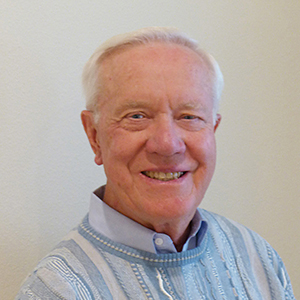Every week headlines announce breakthroughs in artificial intelligence—in robotics, machine perception, and advanced automation. Opinions about the societal impact of this rapidly accelerating technological revolution span the spectrum from anticipated utopias to the fear of existential threats to humanity.
Nils J. Nilsson is the Kumagai Professor of Engineering, Emeritus in the Department of Computer Science at Stanford University.

My own concern is about the effects of AI on employment. In my nearly 50 years of research on AI, I have grown increasingly convinced that AI will have a major impact on employment.
I have concentrated on “strong AI,” which has as its goal automating all the tasks, cognitive as well as physical, that humans can perform. Strong AI differs from “weak AI,” which has as its goal simply providing help to humans. I have always believed strong AI to be ultimately attainable.
Indeed AI and automation are already having profound effects on employment, as former assembly line workers, postal employees, and bank tellers will confirm. Also, soon to be affected are even some mid-level professionals such as attorneys, radiologists, stockbrokers, and newspaper writers. I think that the result of all of this automation will be continuing structural unemployment, especially among unskilled and not-sufficiently educated people.
I don’t think anyone has yet come up with any good answers to what to do about automation-caused unemployment. For the near future, we could put some people back to work by re-building and expanding our obsolete and inadequate infrastructure—highways, roads, bridges, schools, and so on. But automation will eventually impact those jobs also.
Experts have previously said, “Don’t worry, automation has always created more jobs than it has destroyed.” But I believe that this time really is different. Yes, more jobs will be created, but I think many of them will be the kinds of jobs that can also be automated—thus no net gain (maybe even a reduction) in human employment. Creating human-level artificial intelligence (HLAI) is still the goal of many AI researchers. True HLAI implies that any task a human can perform a machine will be able to perform also. And business people (in the United States and abroad) will not hesitate to substitute more manageable and lower-cost HLAI for higher-cost human workers. Will enough non-automatable jobs be created for the unskilled and not-sufficiently educated? I think not.
When a job is automated, productivity is usually increased. The machine can do the job faster and less expensively. Automation will increase the total productivity of the economy. It won’t cause us to be a poorer country—indeed, we’ll be much richer.
The question is, how will all these abundant goods and services be distributed? Just to those few who are sufficiently well off and who still earn enough from their non-automated jobs to pay for them? What social problems will that cause? We will need significant changes in our economic system to ensure that distribution is fair and socially responsible (whatever all that turns out to mean). Several suggestions come to mind, such as a negative income tax, more entitlements, shorter workweeks, and stock ownership by all citizens, so that they will own the machines producing the wealth and thus collect the dividends.
How can any of these things be accomplished without stirring up the usual bugaboos about “socialism” and “europeanization’’? Will our outmoded 20th-century political system prevent us from making the changes needed to prevent what could ultimately lead to significant unrest? Remember, many people will have a lot of free time!
Talking about free time, what will the unemployed do with theirs to give their lives purpose and meaning? Perhaps many of them will decide to continue and/or expand their education. (MOOCs to the rescue?) Some people will devote themselves to long-delayed hobbies and crafts, such as glass-blowing, quilt-making, and wood-working. Or, sports, such as golf, fishing, tennis, and so on. Or watching television, and going to movies, concerts, and plays. Others might become volunteers for social work of various kinds. Some may even enter politics or work to get candidates elected. (We’ll need good ones!)
Of course, the danger is that some people will spend time in various anti-social and personally harmful activities—doing drugs, petty (and not-so-petty) thievery, gang warfare, and the like.
AI is a disruptive technology, and like all disruptions, it will be both a boon and a bane. Many of its consequences will ultimately be up to us. Unfortunately, as Pogo once said, “We have met the enemy and he is us.”

For the Future of Work, a special project from the Center for Advanced Study in the Behavioral Sciences at Stanford University, business and labor leaders, social scientists, technology visionaries, activists, and journalists weigh in on the most consequential changes in the workplace, and what anxieties and possibilities they might produce.



